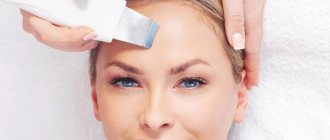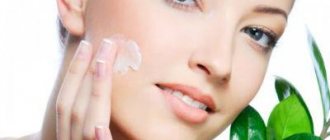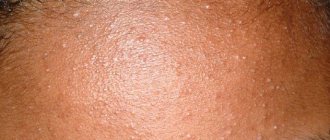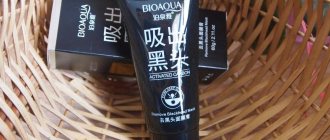- Lemon peeling for facial skin: essence, pros and cons
- Lemon peeling at home: rules of procedure, recipes, indications and contraindications
- Lemon facial peeling: reviews, videos, results before and after the procedure
Lemon peeling is an easy and effective facial skin cleansing procedure that can be done at home by absolutely everyone.
To contents
How does citric acid affect hair?
Citric acid is a universal remedy. It is used in cooking, in the chemical industry, and at home for descaling. The question arises: is it possible to cure hair with citric acid? The answer to this question is yes. Its components stimulate blood circulation, reduce pores and normalize oily hair.
The presence of useful substances in the spectrum forms the positive effect of the citric acid solution.
- Vitamin PP and phosphorus have a beneficial effect on the hair follicle: they promote strengthening and regeneration, improve nutrition, activate growth, and restore structure.
- Riboflavin, which is contained in the composition, is an excellent remedy in the fight against hair loss. It helps strengthen the follicular sacs: narrows the pores, increases blood circulation in the skin, and improves oxygen access to the roots. This not only strengthens, but also awakens dormant bulbs, stimulating growth.
- Thiamine is a substance that fights dandruff, removes flaking, cleanses, moisturizes the skin near the roots and saturates the entire hair with useful substances.
- A solution of citric acid normalizes the secretion of sebaceous fat, gives curls smoothness, shine and volume, eliminates fragility, and has a brightening effect.
- The calming effect of phytoncides eliminates regular itching and allergic rashes.
A positive result is noticeable after 3-5 procedures of regular use.
Contraindications and precautions
Lemon formulations should not be used only by patients with allergies to citrus and with damaged, open wounds on the surface.
Patients with the following skin characteristics should be especially careful when using lemon peels:
- With spider veins on the face;
- With increased sensitivity of the integument;
- With very dry skin.
Lemon is a storehouse of nutritious ingredients, an elixir of youth and health. Free your skin from dirt, sebaceous plugs and dead cells with sour citrus at home. The magnificent effect of freshness, lightness and perfection after peeling with lemon will not leave you indifferent!
The procedure for cleansing the face with home remedies has long been practiced by modern women, since it does not require a lot of time and money, and the effect is sometimes better than after a beauty salon. Particularly popular is facial peeling with lemon, which refreshes and tones the skin.
If you regularly do lemon peeling, your skin will look nicer and younger. What is the secret of such magic? There is only one answer - in the chemical composition of lemon, each component of which works with skin cells:
- The main role in peeling the face with lemon is played by acids, of which there are many in this fruit: directly citric, malic and galacturonic acids;
- pectin substances heal damage, relieve inflammatory processes;
- carotene is important for skin cell renewal;
- phytoncides soothe tired skin - therefore facial peeling with lemon is recommended primarily for residents of large cities, whose skin is exhausted by atmospheric pollution;
- thiamine is used to treat problem skin;
- riboflavin provides the skin with oxygen;
- ascorbic acid is a natural antioxidant that promotes normal production of elastin and collagen in cells;
- flavonoids contained in the fruit make facial peeling with lemon a rejuvenating procedure;
- sesquiterpenes protect the skin from external negative irritants and have a calming effect;
- hesperidin softens the skin and restores its natural color;
- eriocitrin makes lemon peeling possible even for sensitive and irritable skin.
Thus, you will not find a better treasury for your skin, filled with so many vitamins and nutrients. Buy this precious fruit and master peeling at home with lemon, which is not complicated at all.
Facial peeling with lemon: indications and contraindications
You can find different reviews about lemon as a cleansing cosmetic product. It all depends on the individual characteristics of the skin. In what cases is lemon juice peeling indicated for use?
- For tired skin.
- For dirty skin with clogged pores.
- For oily skin with improper functioning of the sebaceous glands.
- For problematic skin.
- For aging skin with the first signs of aging.
But for very dry, sensitive and irritable skin, it is recommended to do lemon peeling + at home very carefully. To avoid side effects, it is better to consult a specialist. Or choose peeling recipes that contain other softening and moisturizing ingredients. Lemon cleansing is contraindicated for those who have open wounds on the face or large areas of inflammation, as well as individual intolerance to citrus fruits.
How does citric acid get rid of oily shine in a few treatments?
Procedures using the following products can restore the pH balance of the scalp, reduce the number of washing procedures, and give shine and a healthy appearance to hair.
- Rinse solution. Per liter of warm boiled water add 10g of lemon and 2-4 drops of aromatic oil. Rinsing is carried out regularly after the washing procedure.
- . 10g of powder is dissolved in 100ml of apple cider vinegar. The first part of the resulting consistency is soaked into the hair, and the second is applied to the head. Make a warming film compress, wrapping it in a towel for half an hour. Afterwards, the hair is washed in the usual way.
- Balm. Add 1 teaspoon of powder to 2 tablespoons of regular hair balm and mix. Apply in the traditional way for 20 minutes and rinse off.
- Scrub. Once a month, use the following scrub to cleanse the scalp. In a small container mix 2 tbsp. spoons of water and powder. The resulting mixture is rubbed in, massaging for 5-10 minutes. Then wash and dry hair naturally.
- Green tea lotion. Brew 1 tbsp in 3 liters of water. a spoonful of green tea leaves. Cool the tea drink and add 2 teaspoons of lemon powder. Apply lotion for rinsing or rubbing.
- Herbal conditioner. 2 tablespoons of a mixture of burdock and calamus are poured into 100 ml of boiling water and left for a day. Add 40 g of acid and 1 tbsp to the strained liquid. a spoonful of aloe gel or juice. Apply the mixture for a quarter of an hour, then rinse with water.
Citric acid to strengthen and activate hair growth
Masks and scrubs are an excellent way to strengthen hair. The components included in their composition envelop the hair and saturate it with useful substances and vitamins.
- . 50 g of acid and 5 drops of rosemary oil are dissolved in 100 ml of chamomile infusion. Rub the mask in with massage movements for 10-20 minutes. For a positive effect, carry out this procedure 3 times a week.
- Strengthening herbal rinse solution. The combined composition of this product has a comprehensive effect on the hair. The complexity of preparation is compensated by the volume of the resulting product, which is stored and used for a long time. The juice of 4 medium lemons is squeezed into a container, the remaining pulp is crushed and placed in a saucepan. Add 20 g of rhubarb root and 400 ml of apple cider vinegar to the cake and place on low heat. After boiling, add 2 tablespoons of herbal mixture of chamomile, nettle and calendula and 2 tablespoons of lemon. This composition is boiled for another 15 minutes, then cooled and filtered. Add lemon juice to the broth and the broth is ready. Store it in a cool place, and use 2 tablespoons per liter of water. Rinse clean hair with this solution.
- Stimulating scrub. Mix 2 tbsp. spoons of acid, sea salt and 30 ml of vodka. The resulting scrub is applied in a circular motion, rubbing in for 10 minutes.
- . From egg yolk, 2 tbsp. spoons, 30 g acid, 2 tbsp. spoons of honey and 1 tsp. Spoons of full-fat sour cream make a mousse. The resulting foam is applied to the head and a heat compress is made for 2 hours. Wash off with regular shampoo after a while.
Indications for use of lemon peeling
- problematic skin;
- skin with increased oil content;
- contaminated skin with clogged pores;
- tired, aging skin;
- freckling and pigmentation.
To perform lemon peeling at home, use freshly prepared lemon juice or lemon zest. In addition, products are used that complement the peeling composition. For example, olive oil and honey are added to lemon juice and used for dry skin. Fresh cucumber and chicken egg white are used for oily epidermis. Rosehip decoction can be used together with lemon juice for problem skin. Peeling with ground oatmeal and honey is effective for rejuvenating aging skin. Using ground coffee together with lemon gives good results for aging skin.
Citric acid for hair: is there any harm?
You should carefully use citric acid for dark-haired people, as a high concentration helps lighten the hair by 1-2 tones. Long-term use of citric acid-based products causes dry hair. If allergic reactions to the components occur, do not use the product.
Citric acid is a universal substance used in various areas of human activity, cosmetology being no exception.
This substance has a beneficial effect on the scalp, tightening enlarged pores and eliminating excessive oiliness from the hair.
In addition, citric acid softens the hard city water with which we rinse our hair after washing, thereby giving softness and shine to the hair and making it easier to comb.
Results and reviews
All peeling recipes with lemon are aimed at improving skin health. Women who constantly perform peeling at home give only positive feedback about this procedure. They note its tonic and rejuvenating effect. The natural properties of lemon stabilize the sebaceous glands, help narrow enlarged pores and remove blackheads from them. Lemon peeling, when used continuously (once every 7-12 days), slows down the natural process of cell aging and stimulates regeneration processes in them.
Citric acid for hair: application
Rinsing hair with citric acid
Most women use rinses after washing their hair, and here citric acid can replace any of them.
To do this, prepare a mixture of two or three tablespoons of citric acid diluted with an equal amount of water. This paste is applied to individual strands of hair, after which they are wrapped in foil, or, in the absence of foil, with plastic wrap. The hair should remain in this condition for 40 minutes.
If you heat your hair with a hairdryer or expose it to ultraviolet light, you can significantly enhance the effect.
After a certain time, the hair is thoroughly washed. If the desired effect is not achieved, the procedure should be repeated. But you should not do it more than three times, since prolonged exposure to acid on your hair can dry it out.
Citric acid is produced only from natural products, excluding the use of genetic modification. Therefore, its use in hair care cannot cause any harm to it, if, of course, the acid concentration is used within acceptable limits.
In any case, this product can replace many chemical products, changing the appearance of hair, making it more manageable and healthy.
Citric acid is one of the universal products due to its use in various areas of life. Most often, acid is added to baked goods and cocktails, but recently there has been a trend of using lemon juice to improve hair health. This is not surprising, since cheap powder is not inferior to expensive professional hair care products. To have a clear idea, let's look at the uses and benefits of citric acid for hair.
Benefits of citric acid for hair
- The powder has a warming effect on the scalp. After application, blood circulation improves; under the influence of heat, all nutrients enter the bulbs and awaken them to growth. Against this background, the hair becomes thicker, and a fluff of new hair is noticed on the head.
- A solution of citric acid and water is called acidified due to its special taste. This product should be used to rinse oily hair to unclog pores and remove sebaceous plugs, as well as normalize sebum production.
- The indication for using lemon juice for hair is the depleted appearance of curls. The acid envelops each hair, creating root volume and increasing thickness both physically and visually.
- The uniqueness of lemongrass lies in its bactericidal, anti-inflammatory, and caring properties. Therefore, acid is often used to treat all types of seborrhea, dandruff, and other scalp fungus.
- Citric acid powder normalizes the water-alkaline balance, making hair immune to the effects of ultraviolet rays, wind, frost, thermal devices, styling tools and other irritants.
- Trichologists are doctors who specialize in solving hair problems. They advise using lemongrass powder in the form of solutions for men and women who are experiencing the appearance of bald spots and bald spots (massive hair loss).
- Lemon contains vitamins that smooth out hair scales, reduce the static effect and prevent frizz. Citric acid is effective in the treatment of dandruff and seborrhea.
- Citric acid is rich in vitamins B1 and B2, which are needed to provide softness and exfoliating effect. The scalp is cleansed, root volume appears, and the section along the entire length and ends is reduced.
What explains the effectiveness of lemon peeling?
Lemon contains many substances that have a beneficial effect on the condition of the epidermis. It has antimicrobial and exfoliating properties. Activates collagen synthesis, strengthens blood vessels, and is an antioxidant. The beneficial effect of lemon peeling on the skin is explained by the substances it contains.
For example:
- fruit acids - citric, malic and galacturonic - are organic non-aggressive acids. They play a major role in peeling, affecting only dead superficial epidermal cells, without affecting healthy, undamaged cells. Citric acid perfectly whitens the skin, has a rejuvenating and antioxidant effect on epidermal cells, and also has antibacterial properties. Malic acid has a beneficial effect on the regenerative functions of cells. Galacturonic acid – moisturizes and tones the skin;
- Pectin substances, the content of which in lemon is very high, relieve inflammation and irritation on the skin;
- Carotene, which performs an antioxidant function and is provitamin A, necessary for cell growth;
- Phytoncides, which have immunostimulant properties, increase the protective properties of epidermal cells;
- vitamins: thiamine, riboflavin, ascorbic acid – strengthen the walls of skin vessels, promote the production of collagen and elastin in cellular structures;
- Flavonoids are the strongest antioxidants and promote cell regeneration;
- Sesquiterpenes that have a protective function against negative external stimuli;
- Hesperidin softens the skin, enhances collagen production and stimulates the restoration of connective tissue structure.
Lemon also contains many useful substances that have a healing and rejuvenating effect on the skin. Lemon peeling is suitable for owners of any skin type: dry, combination, oily, normal. Women appreciated the advantages of lemon peeling, its ease of implementation at home, and spoke only positively about it.
Application of citric acid
- From falling out.
Using citric acid you can prevent severe hair loss. To do this, mix 80 ml. chamomile decoction with 35 gr. lemons, add 10 drops of rosemary ether. Mix, pour into a dark bottle, rub into your scalp every day. - For growth.
To stimulate hair growth, you need to mix ground sea salt with lemon in equal proportions. Add 35 ml to this composition. vodka or cognac, apply the scrub to the scalp and massage for 10 minutes. - For hydration.
If your hair is very dry and brittle, make a homemade conditioner. Take 2 parts olive oil and one part citric acid powder. Combine, leave for a quarter of an hour, use immediately before washing. - To make combing easier.
If your hair is constantly tangled and difficult to style, spray it with a homemade spray. This product will prevent electrification and frizz. Mix 200 ml. warm water with a bag of lemon juice and let the granules dissolve. Shake before each use. - Recovery.
The product is suitable for restoration after coloring or perm. Mix yolk, 30 ml, in a cup. burdock oil, 10 gr. acid and 20 gr. honey. Apply to hair roots with massage movements, stretch the composition along the entire length. Warm yourself and wait 2 hours. Wash off with your usual shampoo.
- If you do not want to spoil your hair with lightening ammonia dyes, use lemon. It will add volume to the mop and cope with the lightening of individual strands.
- To prepare a targeted composition, mix purified water and powdered lemon in equal quantities. Apply to individual curls one at a time and immediately cover with plastic wrap.
- The duration of exposure of the product on the hair is 40-50 minutes. After the procedure, thoroughly rinse the composition with shampoo and use balm. To lighten the strands even more, repeat the procedure after 3 days.
Contraindications
- Absolutely everyone who decides to undergo such procedures must make sure that the skin is free of any damage, scratches, abrasions, ulcers and pimples. Otherwise, you will experience a lot of unpleasant sensations and further provoke the inflammatory process.
- It is strictly forbidden to carry out such procedures if you often suffer from an allergic reaction to citrus fruits.
- Also, do not use such products if your skin is too thin and sensitive.
- Use the composition only if you have done a test on a delicate area of the skin in advance.
The end result will not be long in coming if you follow the rules and follow the instructions in everything. Nobody hides the technology of the procedure anymore, and therefore it is publicly available, we have studied it. To make your face clear and all imperfections disappear, follow the advice.
lemon essential oil for face - benefits and applications
Lightening hair with citric acid
- Citric acid will allow you to safely lighten strands by several tones. The simple composition has several advantages compared to expensive cosmetics.
- If you use citric acid correctly, your hair will not suffer from the procedure. In addition, you will save a lot. You should not waste money on products with the same properties.
- To start the procedure, you need to heat 2 liters. purified water up to 50 degrees. Stir 30 gr. citric acid in liquid. Wash your hair as usual, then rinse your hair with the prepared mixture.
- To lighten the strands by several tones, you need to carry out several rinses in a row. Also, do not forget that depending on the concentration of the product, the hair will lighten faster. Remember, a large portion of acid negatively affects the health of the hair.
- After you have achieved the desired result, you should take a break from using citric acid. Long-term use dries out hair and causes split ends. To maintain the light tone of your strands, it is enough to rinse them twice a week.
- Systematic rinsing with lemon solution can significantly narrow pores. As a result, hair becomes dirty longer. After drying, the composition gives the hair visible silkiness and volume.
- Almost every representative of the fair sex knows that tap water harms hair due to its hardness. Citric acid will help you; the composition neutralizes the effects of alkali on hair.
- To prepare a rinse aid, just combine 1 liter. water and 8 gr. citric acid. It is necessary to use the product after thoroughly washing your hair. Try to apply the composition after each water procedure.
Effect of the procedure on the skin
- Peeling has long been included in the list of procedures performed by cosmetologists around the world. In European countries, sessions are carried out every month as a way to maintain the epidermis in order. To a greater extent, the active components are aimed at cleansing the sebaceous ducts of plugs, keratinized particles and other problems of this kind.
- Citrus juice is loved by many due to the fact that it is able to restore the natural shine of the skin, eliminate excess pigmentation, even out the relief and even expel fluid from tissues. Almost any imperfection, with the exception of excessive fading, can be corrected through systematic sessions.
- The products are aimed at rejuvenation, shaping the oval and highlighting the jaw line. This becomes possible because the acid contained in citrus fruits destroys dead skin particles and exfoliates them. It penetrates the pores, pushes sebaceous plugs to the surface, and improves sebum secretion. In addition to these characteristics, the compositions increase turgor and promote the production of elastin.
- In addition to the inclusion of acids, citrus concentrates a sufficient amount of nutrients. These include a complete mineral and vitamin complex. It goes inside, controls blood circulation and increases it, enriches cells with oxygen, evens out the relief, and promotes whitening. Citrus peels have a positive effect on the density of blood channels. They gain elasticity, reducing the likelihood of developing rosacea.
- Thanks to the inclusion of antibacterial components, rashes are disinfected and dried, and inflammatory processes go away. Lemon acts on the root of the problem, and does not mask imperfections. Some ladies noted that after the first session, acne pops up to the surface on its own. Simply remove them and then treat your face with tonic. It contains a lot of ascorbic acid, which promotes collagen production and draws toxins from the skin.
- Results can only be achieved through comprehensive measures. Of course, the first effect, as they say, is immediate, but systematicity is important in everything. You will soon notice that you look much younger and fresher. A light blush appears, pigment spots of unknown origin disappear. But remember about precautions, because for some categories of people such activities are contraindicated.
how to use lemon for face whitening
Strengthening hair with citric acid
- Prepare 100 ml. strong decoction of chamomile. Mix 5 drops of lavender ether and 10 g. citric acid. Distribute the product over the entire length, wait half an hour. Rinse off as usual.
- To strengthen the strands and restore the damaged structure, you need to mix 15 ml egg yolk in a container. castor oil and 12 gr. citric acid. Apply the product to your hair and massage. After 45 minutes, rinse off.
Citric acid has universal qualities. The composition is actively used for culinary, household and cosmetic purposes. Timely use of lemon-based masks and rinses will help maintain the beauty and health of your hair at the proper level.
Video: 5 unusual uses of citric acid
Hair is considered a woman’s adornment for a reason, especially if it is well-groomed, shiny and healthy. Some people are naturally blessed with smooth and silky curls, but most women are forced to carefully care for their hair day after day, providing their hair with constant care, nutrition and restoration. Fortunately, today the cosmetic market offers a wide variety of products that make hair care much easier.
But, as before, folk recipes remain especially popular, which are not only as effective as store-bought products, but often surpass them. One of the most effective home remedies for hair is citric acid. Its advantage is its availability, low cost and ease of use. And the results will pleasantly surprise you - your hair will become manageable, shiny and healthy.
Citric acid not only strengthens hair, but also fights dandruff!
Benefits of citric acid
Despite the seemingly aggressive effects of citric acid, this miracle powder can literally transform your hair. The thing is that citric acid acts on hair completely differently than on skin. The acid stimulates blood circulation, due to which the hair partially changes its structure and growth rate. What exactly does citric acid do for your curls?
- Penetrates into pores.
Acidified water or homemade hair washes based on citric acid actively restore hair follicles, penetrating deep into the scalp. In addition, the acid tightens pores and regulates hair oiliness. If your hair is too oily and thin, citric acid will dry it and add volume. As a result, you will be able to wash your hair much less often than before. - Moisturizes hair.
The uniqueness of citric acid is that it can simultaneously dry and moisturize the scalp. It's all about the perfect balance of sebum and moisturizing components that remain inside the bulbs. If you combine citric acid with moisturizing substances (for example, light base or essential oils), your hair will be absolutely healthy. - Stops hair loss.
Citric acid is used in general therapy to combat baldness. The fact is that the acid contains riboflavin, which tightens pores, enriches skin cells with oxygen and improves blood circulation near the hair roots, due to which the hairs are securely attached to the follicular sacs and become strong. - Smoothes hair scales.
Ungroomed hair cannot be styled because its scales literally stick out in different directions. When washed with aggressive alkaline shampoos, these scales open, and along with the dirt, beneficial substances are washed out of the hair structure. That’s why it’s so important to use conditioners and conditioners after washing. Thanks to its acidic composition, a rinse or homemade balm with citric acid will completely close the cuticle, smooth out the scales and make the hair smooth to the touch. - Fights dandruff.
The substance thiamine, which is rich in citric acid, gently exfoliates the stratum corneum of the skin and allows nutrients from masks and conditioners to penetrate deeper into the scalp. Thus, the skin is actively saturated with moisture, and dandruff completely disappears. - Soothes irritated skin.
Phytoncides contained in citric acid help soothe the scalp, eliminate itching, flaking and allergic rashes. - Gently lightens hair.
If you dream of your hair being a little lighter, but at the same time want to preserve its beauty, citric acid will help you. Acid-based masks and rinses will not only make your hair healthier, but also lighten it without adversely affecting the structure of the curls.
Thus, citric acid (either alone or as part of a variety of home remedies) can quickly and effectively strengthen your hair, give it a healthy look and solve complex problems such as hair loss, fragility and excessive oiliness.
How does lemon cleansing work?
Regular use of lemon peeling provides the skin with a healthy appearance and rejuvenation. Each component in the chemical composition of lemon works with skin cells:
- The main role in this procedure is played by acids, which are abundant in this fruit. Directly apple, lemon and galacturonic acid.
- Citrus contains pectin, which promotes skin healing and eliminates inflammatory processes.
- Carotene plays an important role in skin cell renewal.
- For residents of large cities, peeling is very important because it soothes tired skin that is susceptible to atmospheric pollution.
- Thiamine is successfully used to improve the condition of problem skin.
- Riboflavin saturates the skin with essential oxygen.
- Ascorbic acid promotes the production of elastin and collagen, so it is an essential natural substance.
- Flavonoids found in lemon promote skin rejuvenation.
- Sesquiterpenes create protection for the skin from external negative factors and have a calming effect.
- Hesperidin makes the skin soft and restores its natural color.
- Eriocitrin allows you to peel with lemon even on sensitive, irritation-prone skin.
The multifaceted effect of citrus on the epidermis layer, the richness of its composition, allow it to be used in its pure form and combined with cosmetic oils, soda, honey, and sour cream.
Lemon facial peel at home is the best chemical skin treatment available to everyone.
Such manipulations fill the skin with many vitamins and nutrients, making it light, airy, fresh and toned.
Anyone who masters the basics of the procedure will see its benefits. In addition to flawlessly and quickly cleansing the skin, it is quite simple to perform, with low costs for ingredients and a short list of contraindications.
How to use citric acid?
You can prepare many products based on citric acid that will help make your hair beautiful and healthy. Remember: care using citric acid should turn into a daily routine, and not a one-time health promotion.
Remember: exposure to citric acid on hair should be regular!
- Mask against hair loss.
If you have a hair loss problem, try the following recipe. In 100 ml of warm chamomile decoction, dissolve 50 g of citric acid in crystals and 5 drops of rosemary essential oil. You can also use freshly squeezed lemon juice. Stir the mask thoroughly and apply to the scalp three times a week. During application, use a special massager to warm up the skin and enhance the effect of the mask. - Scrub to stimulate hair growth.
An ideal option for those who want to grow long hair quickly and safely. Mix citric acid powder and medium-ground sea salt in equal proportions. Pour 30 ml of alcohol or vodka into the mixture and mix the scrub thoroughly. After each hair wash, rub the resulting mixture into the scalp, spending at least ten minutes on this activity. After the scrub, you should feel a slight tingling sensation, which indicates active blood circulation in the hair roots. - Conditioner to combat oily hair.
You will need dry calamus and burdock roots. Pour 100 ml of boiling water over them, cover with a lid and leave for seven hours. Then add the juice of three lemons (or 40 g of citric acid powder) and 1 tbsp. aloe gel, shake the mixture thoroughly. After washing your hair, apply conditioner to the skin and leave for ten minutes. Rinse off the conditioner with lukewarm water. - Moisturizing balm for dry hair.
A mixture of extra virgin olive oil and citric acid shows excellent results. Instead of powder, it is better to use freshly squeezed lemon juice. The ratio of olive oil and lemon juice should be 2:1. Apply conditioner to your hair after each wash. It is necessary to leave the balm for about half an hour, and then rinse with plenty of warm water. - Wrap for damaged hair.
If your hair is severely damaged and dry (for example, after a perm), try making a mask based on citric acid. You will need one egg yolk, 2 tbsp. burdock oil, 30 g citric acid powder, 2 tbsp. honey and 1 tsp. fat sour cream. Using a whisk, beat the mixture until fluffy and apply a thick layer to the scalp. Wrap your head in cling film and a warm scarf. Leave the mixture on the skin for at least two hours, then rinse with warm water and mild shampoo. - Treatment conditioner for blondes.
It will not only improve the condition of your hair, but will also correct its color. Mix the juice of three lemons with a strong decoction of chamomile and 1 tbsp. corn starch. Apply conditioner to damp hair twice a week after shampooing. - Spray for all hair types.
With this spray you can instantly give your hair a dazzling shine. Cut two limes and one large lemon into thin slices. Pour in 200 ml of water and bring to a boil. Reduce the heat to low and simmer the mixture until half the water has evaporated. Stir the broth periodically, then strain it and pour into a container with a spray bottle. Add 1 tbsp. pure medical alcohol. Spray the spray on your hair as many times a day as needed.
Well, perhaps the easiest way to give your hair shine and softness is a final rinse with water with the addition of citric acid. Simply squeeze the juice of one lemon into 250 ml of warm water and rinse your hair after washing and using conditioner.
Lemon peeling: recipes
There are a lot of options for mixtures, so through trial and error you can choose exactly your lemon peeling: the recipes for the compositions are simple and accessible. The unique feature of this product is its consistency. Epidermal cells do not develop addiction to the components used, so the same composition can be used for years by choosing a suitable schedule. Therapeutic courses of 10-12 procedures must be alternated with preventive sessions. Don’t forget about softer options for regular care that will keep your facial skin in excellent condition.
Classic lemon peeling for very oily skin
We dilute three tablespoons of lemon juice with two tablespoons of drinking water. Add a teaspoon of olive oil and mix everything well. Apply the composition to the skin with a special soft brush and after a quarter of an hour remove it with a cotton pad soaked in cool water. The procedure is recommended to be carried out in the evening, before bedtime. After removing the peeling base, a little oil may remain on the skin; there is no need to wash it off or rinse it off with special products. It’s better to leave everything until the morning and then cleanse your face. Olive oil will protect cells from the aggressive effects of lemon juice and allow the stratum corneum of the epidermis to exfoliate gently, without damaging the skin. After the first session, the face will become cleaner, fresher, the unhealthy shine will disappear, and the pores will become less noticeable.
Gelatin peeling with lemon and orange
We dilute a packet of edible gelatin with lemon and orange juices, taken in equal quantities, and place in a water bath. Stirring constantly, heat the mixture until the gelatin is completely dissolved. Cool the composition to a temperature that will not cause a burn on the skin and apply a thin layer to the face. When the peeling base turns into a film, remove it in one gentle movement, starting from the bottom of the face. Along with the film, dirt, dust, excess sweat and sebum, plugs and comedones will come off. The skin will be cleansed, refreshed, its tone and texture will be evened out. Lemon peeling with a film effect helps to rejuvenate the face, smooth out wrinkles, and tighten the skin. The fortified composition will trigger cellular processes, which will gradually lead to the normalization of water and lipid metabolism.
Honey peeling with lemon juice
Melt two tablespoons of liquid bee honey in a water bath, but do not heat it. Mix honey with a tablespoon of lemon juice. If you want to add a scrub effect to the peeling, you can add a teaspoon of oatmeal. Stir the mixture and apply to the skin with gentle massaging movements. Leave the composition on the skin for a quarter of an hour. If the mass dries out, then before removing it, apply a napkin soaked in warm water to your face. Remove the product with a damp and warm cotton pad. The purpose of peeling is to soften the epidermis on which seals have begun to appear, and to cleanse the surface of the face from dirt and germs. This lemon peeling can be used to care for sensitive skin. If necessary, the amount of lemon juice can be reduced, and after the procedure, make a soothing and moisturizing oil compress.
Sugar peeling based on lemon juice
Pour two teaspoons of sugar into lemon juice and stir until thick sour cream is obtained. It is important to remember that this is not a scrub! Apply the composition to the skin only after the sugar crystals have completely dissolved. Distribute the mass in a thin layer, not rubbing the skin. After 10 minutes, take a dry cotton pad and remove the composition, after which we wash. If the product has dried out, moisten the cotton pad in cool drinking water. After the cleansing session, apply moisturizer to the skin. In addition to gentle cleansing, this care option allows you to moisturize and nourish oily skin. As a result of exposure to acids, dirt and fat are pushed out of the pores, which leads to normalization of the width of the sebaceous tubules. Sugar peeling with lemon helps restore cleanliness and freshness to skin prone to oiliness, unhealthy shine and inflammation.
Lemon peeling for dry and sensitive skin
Grind the fresh zest of two lemons in a blender or coffee grinder and combine with a tablespoon of olive oil. Apply the mixture to the skin in a thin layer and leave for a quarter of an hour. If there is no inflammation on the surface of the face, you can do a light massage before removing the composition. Remove the product with a cotton pad, wash, and pat your face dry with a paper towel. After the procedure, there is no need to try to get rid of residual oil with special cleansers; it is better to leave the skin alone for several hours, this will provide the cells with additional nutrition. Peeling based on lemon zest and olive oil allows you to cope with peeling of the epidermis by thoroughly moisturizing the tissues and accelerating the detachment of the stratum corneum. The skin is saturated with vitamins, and signs of stress, fatigue and vitamin deficiency disappear. The complexion is evened out, roughness on its surface is smoothed out.
Cranberry peeling with lemon juice
Mix a teaspoon of lemon juice with a teaspoon of lemon zest, add two tablespoons of mashed cranberries and a tablespoon of fresh kefir. Bring the mixture to a homogeneous state and apply to the skin, working on problem areas, areas of acne and comedones. After 10 minutes, we massage the face again. This time, you should feel loose sebaceous plugs, cones of blackheads and blackheads under your fingers. After the massage, remove the composition with a gauze swab (this is an additional mechanical effect) and rinse your face with cool water. The proposed lemon peeling is suitable for normalizing the condition of oily and problematic skin. It simultaneously cleanses, tightens pores, disinfects the surface of the face, rejuvenates the epidermis, removes dead skin cells and stimulates metabolic processes. This complex effect allows you to even out the structure of the skin and get rid of a number of visible defects at the cellular level.
Pomegranate peeling with honey and lemon
Squeeze the juice from the seeds of half a pomegranate, mix it with two tablespoons of lemon juice and a tablespoon of liquid honey. You can prepare a scrub from the same components; in this case, simply grind the pomegranate seeds using a blender. Distribute the resulting peeling base over the surface of the face and cover with cotton pads. After a quarter of an hour, remove the product with the same discs and wash the skin with cool water. As a finishing touch, you can treat your face with an ice cube, this will further tighten the pores and soothe the tissues. The described product can be used to cleanse oily and problematic skin, as well as to smooth out the structure of the epidermis of a combination type. It allows you to get rid of severe oiliness and dryness in certain areas, cleanse the T-zone, and refresh your complexion.










